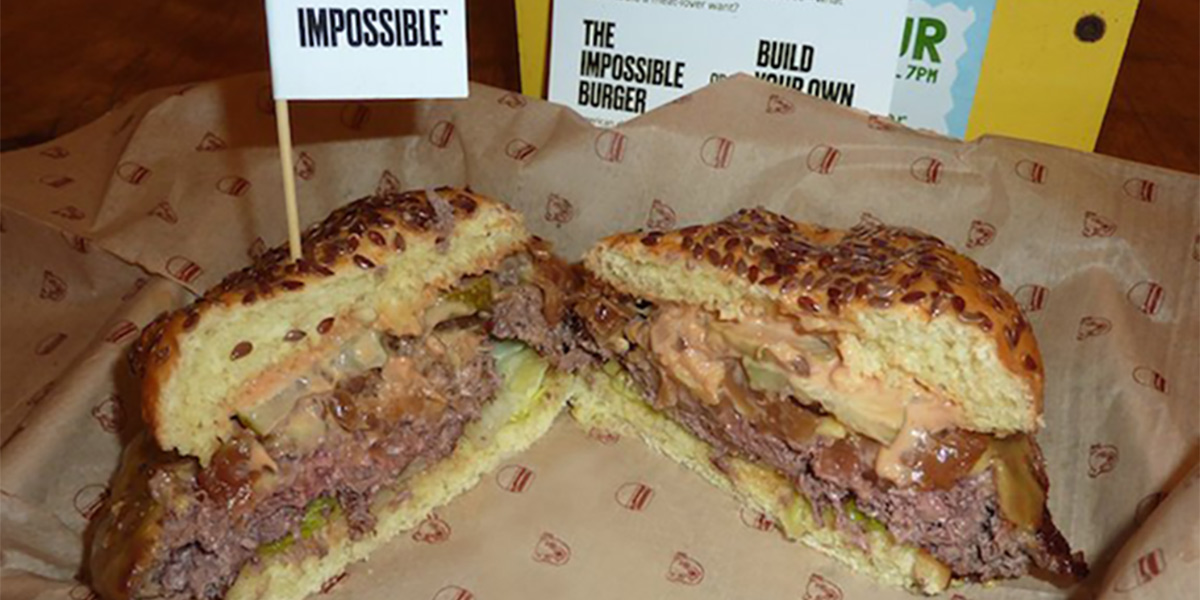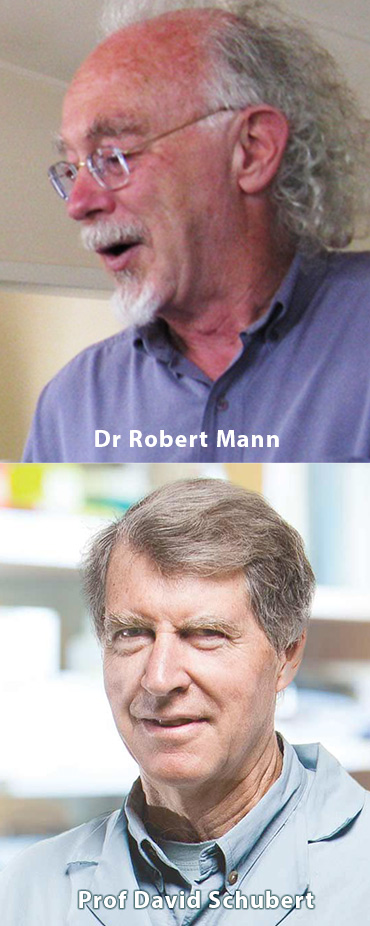
Air New Zealand is offering its passengers the meatless Impossible Burger, which contains an ingredient made with GM yeast. Dr Robert Mann and Prof David Schubert explain the risks
Air New Zealand has announced that it is offering passengers the Impossible Burger, the key ingredient of which is soy leghemoglobin (SLH), a protein that's never before been in the human food supply, produced in GM yeast. Below this comment is a response to the announcement by Dr Robert Mann, New Zealand's senior scientific critic of GM since it was invented in the mid-1970s, and Professor David Schubert, head of the Cellular Neurobiology Laboratory in the Salk Institute, San Diego.
Here’s some background. When the burger’s manufacturer Impossible Foods first applied to the US FDA for GRAS (Generally Recognised as Safe) status for SLH, the FDA refused to grant it due to the fact that Impossible Foods’ arguments “do not establish safety of SLH for consumption”. But the company went ahead and marketed the burger anyway.
Impossible Foods has since submitted additional data to the FDA. The FDA responded by issuing a “no questions” letter.
Contrary to Impossible Foods’ implications in quotes to the press, a “no questions” letter is not an endorsement of safety. The FDA does not endorse the safety of any GM product. Instead it simply states that it has no more questions and reminds the company that it is the company’s responsibility to put only safe foods on the market, or it could be held liable (see GMO Myths and Truths for more information on this process).
Dr Mann offered his and Prof Schubert’s article to the country's most prominent newspapers and a main TV network. All rejected it. Dr Mann told us, “The only excuse for rejection was that too much time had elapsed since Air NZ's announcement. In other words, when Air NZ mounted a PR exercise (with no countervailing information from any other party), that counted as news; but when, a fortnight later, respectable critics point out faults in the caper, that does not qualify as news.”
We are pleased to publish it below.
---
 A misguided experiment
A misguided experiment
Dr Robert Mann and Prof David Schubert
Recent research has concluded that a powerful method to decrease emissions of greenhouse gases is to decrease demand for meat. Many individuals would like to reduce consumption of meat, for this and/or a variety of other reasons. Thus the idea of a vegetarian burger that tastes and bleeds like a beef patty may be very appealing to some. Air New Zealand now announces an intention to offer some passengers the “Impossible Burger”, promoted as a meatless burger that is both healthy and environmentally friendly. It is not, however, quite what the health-conscious consumer might expect.
Historically, there have been serious problems with some genetically manipulated bacteria and yeast. Two decades ago a food supplement, tryptophan, produced in GM bacteria killed a couple hundred people and maimed a few thousand, and GM yeast producing the potent mutagen called methylglyoxal was an unintended side-product of ethanol production. These are just a couple out of many examples of the unpredictable nature of GM technology. And in the absence of any oversight on safety and of required product labelling, there is reason to be concerned about the new GM burger.
Its most abundant ingredient is processed soy protein, likely from GM soy that contains residues of a probable carcinogen, glyphosate. But the key ingredient is the protein soy leghaemoglobin (SLH). This is a plant protein that contains an iron-bearing molecule called heme, in much the same way as human haemoglobin in blood and myoglobin in muscle, the proteins that are responsible for the colour and some flavours of red meat. However, the SLH is produced as an approximate replica in GM yeast, only partially purified, containing a number of other ingredients derived from GMOs that have not undergone safety testing.
Because of the unique nature of this ‘blood-like’ protein and the additional untested yeast proteins in the burger, the US Food and Drug Administration concluded “the arguments [submitted by the company] do not establish the safety of SLH for consumption”. However, passing FDA safety criteria was not required before the sale of a GM burger. Therefore, contrary to the advertorials for the Air NZ burger, it would not be the choice of someone who seeks a healthy diet.
That an airline named for New Zealand is offering this untested, potentially hazardous experiment to passengers without their knowledge of its ingredients is an embarrassing mistake. Limiting the GM burger to high-fare seats may be some consolation to those of us who travel ‘economy’, but the whole caper is wrong.
Biochemist Dr Robert Mann, Senior Lecturer (retired) in Environmental Studies, University of Auckland, is a former long-time advisor on poisons to successive Ministers of Health. Professor David Schubert, head of the Cellular Neurobiology Laboratory in the Salk Institute, San Diego, is experienced in appraisal of GM.










